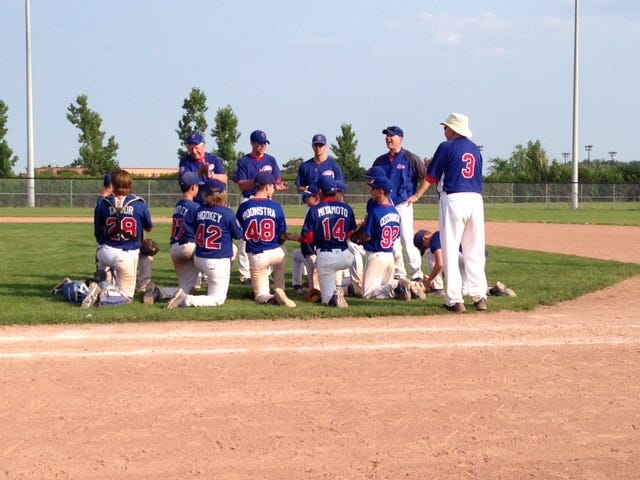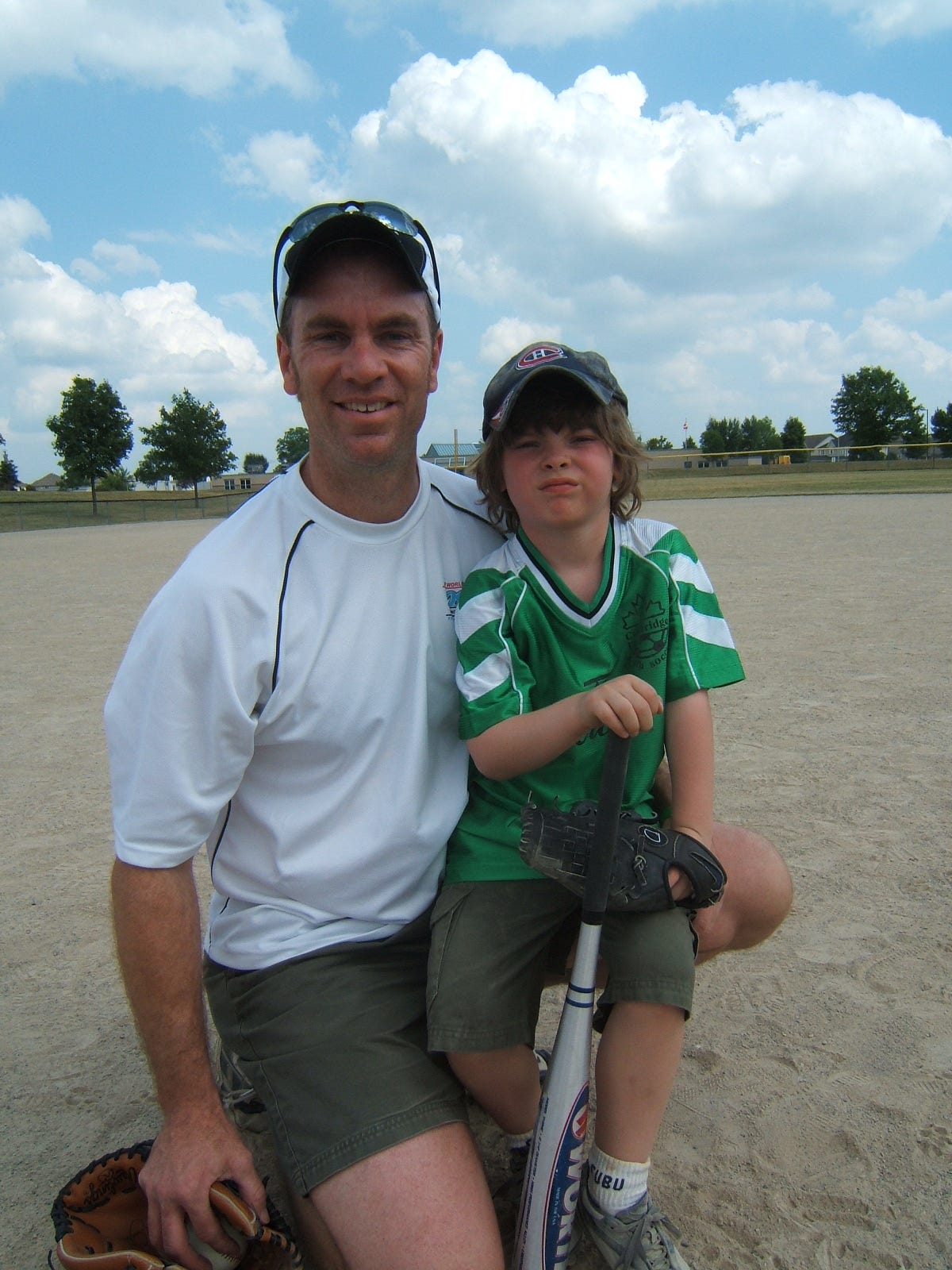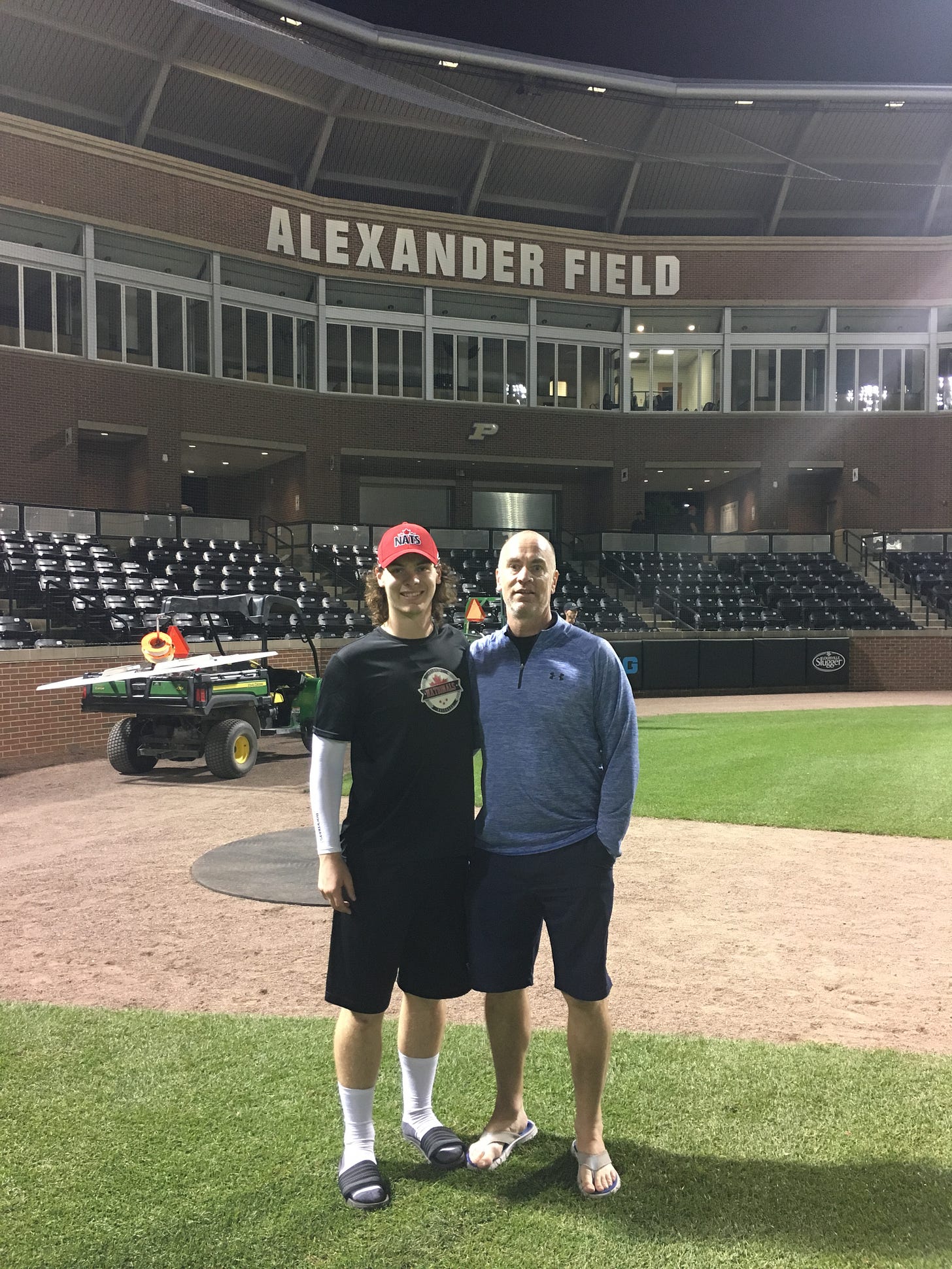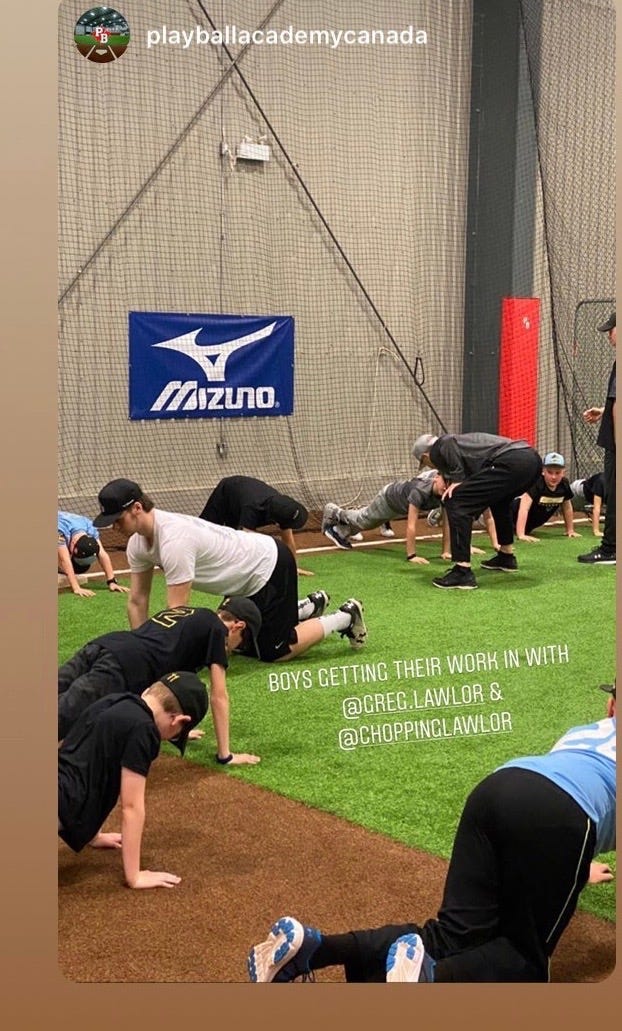How a Parent Coach Can Be a Great Coach, For Everyone Including Your Kid.
This week we talk about the controversy of parent coaches, and explore a innovative plan for youth hockey during a pandemic.
Good morning. Hope you are enjoying your Labor Day weekend!
Thanks for subscribing to The Physical Movement, a newsletter covering leadership, youth sports, health and fitness. The response to our newsletter has been overwhelming, thank you.
If you enjoyed this article, feel free to access our library on the website and don’t be shy in referring to others you think might benefit!
Today, we cover the topic of parent coaching.
Let’s get to it.
It is a common occurrence in today’s youth sports.
A parent steps up to coach their son/daughter.
This article explores the realities, the concerns and the guidelines for families, as well as for organizations who turn to parents as coaches of your local team.
For over 30 years, I have been in each seat. I have played for parent and non-parent coaches. Coached as a non-parent. Coached as a parent. Been a parent non coach as well simply watching my son from the stands.
First and foremost, it is very important to recognize the requirements of being a youth team coach.

For those parents who have not coached, this is important.
All coaches understand these tasks.
Unless the organization provides admin support, and that is rare, a youth team coach is required to cover many duties.
One of the biggest time commitments is the administration of the team. Administrative duties include overseeing and executing:
· Coaches certification. Most leagues now have requirements for coaches to learn the rules, the skills, and other aspects of coaching duties. While this is a big step forwards to standardize coaching expectations, it adds more responsibility to the job.
· Tryout scheduling.
· Uniform ordering and any additional team attire. Collection of money that goes with team attire. (warm up and practice wear).
· Processing of fees administration. This especially applies beyond house league level where the organization would handle during registration day. At the travel level, because they require extra fees, the coaches are often left to collect and coordinate remittances.
· The travel level also requires admin of the collection of provincial fees. The local organization fees are one thing, then there is the provincial fees.
· Contacting of players and scheduling games and practices.
· Tournament organization (registration and collection, travel, hotel, schedules).
· Game day administration (field or court prep, scoresheet preparation, lineup organization and player rotation).
· Picture day.
· League and/or organizational meetings on overall function and responsibilities.
· In some cases, fundraising falls to the coach.
· In travel experiences, as young as 9-10 years old are also doing off field of play training during off season. While this is controversial, it has become the norm.
· Parent communication. Everything from yearly plan to communicating schedules and re-schedules.

Then there are the actual duties around skill development and coaching within the competitions. The area that should represent 80% of the coaches duties is not actually the case when we consider the above mentioned administrative responsibilities.
· Overseeing and developing individual and team tactical skill development and execution
· Setting goals and executing activities around a developmental model. While this is not a standard per se, it should be and the norm. This would include ensuring the culture on the team was positive and confidence was growing in each player.
· Monitoring playing time.
· Overseeing physical and mental preparation.
The responsibilities are extensive. The actual percentage of time allocated to player development and coaching in and around the game itself are often lost in this list of requirements.

The details outlined above are important to identify because it highlights the first major aspect around organizational requirements, which is to have coaches who will fill this role. It is a major role. In many cases it is a 2nd full time job which runs most of the year.
A second major consideration around coaching youth sports in a modern day is how this position, most often a volunteer, potentially exposes the coach to much 2nd guessing and criticism. In everything from player selection to playing time to disappointment with the outcome of games. The criticism can be loud and frequent.
The requirements and the thankless nature of the job has eliminated many non-parent candidates from volunteering. That is a simple fact. This was not always the case. In my early years of playing various sports, I rarely had a coach who had a child on the team. Things have changed. Non-parents are less interested in volunteering their time and being subject to the criticism.
Without non-parent volunteers, then the demand for parent coaches becomes a major obstacle to team function.
It is only with this backdrop that we can consider the impact of a parent coach on a youth team. Once we acknowledge the responsibilities, then we can explore how a parent coach can be a great coach, even for their own kids.
The first and major consideration to any coach who volunteers should be an understanding of how this position will affect the experience of the son /daughter. While on the one hand the team need volunteers, on the other hand the impact on the son/daughter is significant. There are 2 outcomes that seem to be the norm.
Having a parent coach makes the experience harder for the child.
1. Parent coaches will often go out of their way to not show preference to their offspring.
This can be hard on the participant and affect their overall experience.
2. The son/daughter gets put in positions and playing time that has a preferential bias. This is the opposite of the above and does an equal amount of damage. The child does not develop as if they had to earn their way, and the whispers of criticism to the coach and the player can be heard consistently.
The 2 points are so significant, that many very qualified coaches, who have had extensive playing and non-parent coaching experience have chosen to not volunteer or take a reduced role in order to not influence the experience for their own kids. This is a factor that keeps many qualified from within the community of stepping up.

This lucky parent coach managed to get to coach with his son. Must have done something right!
With all this in mind, here are the 6 points and rules for coaching your kid and 4 considerations for organizations in hiring a parent coach.
The reality is parent coaches are needed unless a major overhaul of our youth sports system occurs, so it is in everyone’s best interest to have a guideline to make the best of it for the participants.

6 rules for coaching your kid.
1. Remember the main goal. Fun, life lessons and development of the young person.
Not the ego, and fill of competitive void of the coach/parent.
2. Family agreement. Understand that coaching your kid, can be hardest on the kid. Have a good long talk with your spouse and your son/daughter to discuss pros and cons and realities of being coach’s kid. In reality, the participant should be onboard with the decision. The topics of discussion should include potential criticism they will get with Mom or Dad as a coach, and the impact on the function of the team if they do not coach. Yes, this applies even when the kids are young. Checking to see if ok with the young one to have Dad/Mom as the coach is never a bad idea. That discussion should be had prior to every commitment for taking on a team.
3. If a travel team or advanced level, ensure there is 3rd party validation that your son/daughter is good enough to be on the team. Sounds simple, but trust me it is not easy.
4. Surround yourself with some assistant or associate coaches. Non-parent if possible but getting support with decisions concerning team management and son/daughter can be helpful with others qualified to support.
5. Create a transparent process for all around playing time and position selection, which would include your son/daughter. These standards on performance criteria and playing time should be enforced for all. .
6. Have a clear coaching philosophy and standards to communicate to all parents what guidelines are for playing time for all team members.
From an organizational perspective, many of the above points can be applied when adding a volunteer parent to coach. In fact, documenting much of the above and sharing with the coach and all parties can be an important process in ensuring all are aware of the standards the team and organization will target. They become performance criteria that all can agree on prior to the season.
4 considerations for a youth organization in hiring parent coaches.
Additional considerations in hiring a parent volunteer (sometimes they are the only ones interested in taking on the job):
1. Experience in coaching, or in the sport, or in communication and leadership. The experiences at a very young age can dictate a lifetime of participation choices for the kids involved. Having someone at the realm who is not very good at any of the above is counter productive to the point of having a team.
2. Agree on coaching philosophy in line with the organizations around goals.
3. Have assistant coaches also go through coach’s certifications and understand the goal and philosophy of the organization. Often, assistants are shielded from this by the head coach and that too can be counterproductive.
4. The organization should have as much mapped out for the coach as possible around standards and policies. This is a policy manual that all can work to develop and adhere to.
Parental coaching has become the norm in our youth sports. This is partly due to the necessity of needing volunteers. It is a very difficult job that is subject to much criticism.
Creating standards by the organization helps.
Having strong guidelines as a parent coach also helps. It becomes the game plan to manage the team.
Play. Lead. Be Strong.
Here is an innovative and progressive approach to making the most of the pandemic. A hockey association in Ontario is using this time to focus on skill development.
Recently, The Athletic published an article documenting an innovative approach to this coming year’s hockey competition.
Many youth sports organizations are struggling with the impact of COVID-19 and how it affects programming.
Normal programming involves many games, travel and tournaments. Of course this is mostly all suspended.
The minor hockey organization in Quinte (covering Belleville areas approx. 2 hours from Toronto) will open the season with a focus on skill development, but not just with the regular coaches on staff. Quinte has connected with some of the highest-profile coaches in the area — right up to the head coach of the local AHL franchise — to work with all the children in uniform.
Mapping out a plan to bring in very experienced and skilled coaches and structuring the programming in 4 week blocks will allow Quinte to execute on what many youth sport governing bodies have said for some time: focus more on skill development. This ties into a developmental model rather than a competitive model. The competitive model is where most organizations have veered to in the last number of years.
A very relevant quote within the article came from Dr. Stephen Norris, a sports scientist who stated that
“What we’ve tended to do, in many sports, we confuse early performance — at least at an age group level — with talent.”
Bringing in the higher level coaches, who themselves are in limbo with their seasons in jeopardy or pushed back allows the young athletes to really get the skill instruction and practice needed to develop. It is mentioned the coaches are being compensated by the organization. In this case, it includes having access to some elite level strength and conditioning coaches as well.
The article also mentions that there has been no reduction in enrollment as this modified season starts up.
This is the biggest endorsement of all.
There is a valuable lesson here for all organizations in thinking outside the box, and getting creative in a very difficult situation.
Tapping into local coaching leadership and talent is a brilliant idea and a great example of relying on resources available, that otherwise would not be in an non-pandemic world.
Here is the entire article.



